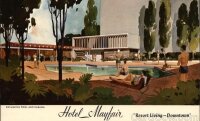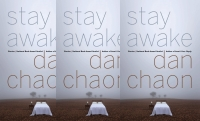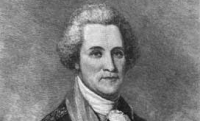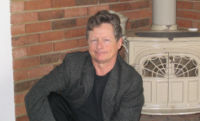Featured Writer/ Cut Through The Bone
Interviewed by Amber Sparks
September 2010
1. Your piece in the September issue of Emprise is so full of empathy for the man about to jump. It’s one of the things I love not only about this piece but your work in general; you have such compassion for your characters and this seems especially rare today when so many writers write in a more detached style–even the narrator is often alienated from him or herself. Do you think it’s important as a writer to care about your characters? And if so (or if not), why? Do you find stories working or not working because you do or don’t identify with or empathize with the people in them?
I do think it’s important to care about our characters. I also think care is complex and can run the range anywhere from the intention to honestly render our characters (be they lovable, despicable, or whatever) to flat out worrying for them, suffering for them, and even falling in love with them.
However, I don’t usually go into a piece with any conscious bias or particular sense of the characters I’m about to meet and how I will feel about them. Essentially, I enter the work blind, open to what will unfold.
More and more, I find the stories that don’t work are those where the characters and their dilemmas don’t interest, perplex, surprise, and move me.
2. When I read your work, it feels to me intensely personal and often almost confessional in nature. Do you think that’s fair or accurate, and why or why not? Do you find yourself writing about experiences you’ve had, people you’ve known, etc–and if so, why do you think that works for you? Have you ever gone to the opposite end of the spectrum and written something that was completely alien to you, that you had no personal connection to? Or would you ever?
That’s interesting you find my work intensely personal and often almost confessional. I think it’s true a part of me is in every story, but it’s rarely conscious and actual. For the most part, my work surprises even me. I’ll often “finish” a story, sit back in my chair, and wonder where did it come from? That, for me, is writing’s magic and grace.
You’re right, though. There’s autobiography in every story I write in that every story I write reveals me in some way or another. If you look at my work as a whole, the recurring tropes and themes reveal a great deal about me. Yes, I have used actual individuals and events in my stories, but I’d say this is the exception rather than the rule.
For “The Bridge They Said Couldn’t Be Built” it’s autobiographical in that I’ve sometimes, perhaps too often, tried to save others in some way or another. It’s also autobiographical and confessional in that I too have felt terrified and, yes, tempted. However, I try not to allow facts and autobiography to limit my work. Rather, I attempt through fiction to reach greater truths.
In my forthcoming collection, “Cut Through the Bone,” many of the thirty short short stories are “pure” fiction, but the work as a whole reveals a lot about me. Front and center are my obsessions with mothers, phantoms, missing parts, a longing to be whole and to make sense of the strange. There’s the autobiography.
Conversely, my second forthcoming collection, “Hard to Say,” draws heavily on memory and the actual. Thus I’m present and exposed in both collections, but I also consider both to be fiction and believe they are all the better for that.
As for confessional, I think again you’re right in that my work allows me to have a voice at last, to speak the unsaid and say “I” and “I” and “I’—something I felt robbed of for all too long.
3. You need/want to write a story. How does the process work for you? Do you have a place, a time, or a method, or does a story need to find its way into your head first before you put pen to paper? How often do you write? Do you ever use prompts? Or is it different for you all the time?
My writing life has become ritualized. I write at my glass desk every day. Monday through Friday, I write while our two daughters are at school. At the weekend, it’s whenever I can grab a few free hours. I’ve held this routine for the past three years, since our youngest started Kindergarten.
For me, anything can fuel a story. As a family, we regularly host and attend dinners with friends. More and more, scraps of conversation, some quirk, or tidbits from stories shared at the table will fuel my work. It takes very little to trigger me.
Also, for the past couple of years, I’ve had an on-off relationship with writing prompts. More and more, thanks to Randall Brown and his wonderful site FlashFiction.net, I find great inspiration in poetry, most recently the work of Anne Sexton and Bob Hicok.
I’ll read a poem and jumpstart a story from one or more of the words that speak to me. Frankly, I’m starting to feel a little dependent on the prompt words, though, and that bothers me. For now, it works so I’ll try not to worry too much—inspiration is inspiration. However, I don’t want to become dependent or stuck on any one trigger, especially when they are “found” words. I want to continue to grow and evolve and draw more directly on my own subconscious.
Without doubt, the biggest bane to my process right now is that I can’t ever seem to get beyond the first few chapters of a novel. The short short story, or to use Kyle Minor’s term “mini-narrative” has its claws deep inside me. Again, I try not to worry and to run with what’s working at any given time.
4. Who are your influences when you write? Writers, musicians, painters, poets, doctors, teachers, athletes, family, friends—who, living or dead, imaginary or real, has shaped your work in a big way?
Again, I’ll risk truth and say that I don’t have any conscious influences when I write and don’t believe anyone has shaped my work in a big way. I think my life experiences, my childhood in particular, have shaped my work and my voice. Certainly, I’m mindful of my Irishness and her brilliant writers, both past and present.
Where other writers—and all artists that I enjoy and admire—have influenced me is by stirring my insane hunger to write the best and most honest work I can. Of course reading, and all the arts, are essential to realizing the latter. Nowadays, we have a never-ending profusion of work all around us to wow and inspire and make us gnash our teeth with yearning.
5. If you were allowed to bring three books onto the proverbial desert island, what books would you bring? (And no, no e-readers, not because I’m anti-e-reader, but because there are no outlets on the island.)
Only three? No. No.
Okay.
Wuthering Heights, Emily Brönte.
As a teenager this book was my best friend. I am in there everywhere.
Only two more. Hmmm. This is agony. I’m scanning my bookshelves, again and again.
Okay.
American Salvage, stories by Bonnie Jo Campbell.
It’s one of the best story collections I’ve read recently. I think I could read it over and over again on that desert island and each time it would offer up something new, something bright and shiny.
The Bigness of the World, stories by Lori Ostlund.
See above.
6. What contemporary writers are you most excited about, and why?
Where to begin? We’re blessed with so so many excellent and brilliant contemporary writers. Off the top of my head, those I’m currently most excited about are:
- Matt Bell
- Robin Black
- Bonnie Jo Campbell
- Jennifer Egan
- Roxane Gay
- Barb Johnson
- Michael Kimball
- Victor LaValle
- Mary Miller
- Kyle Minor
- Lori Ostlund
- Laura Van Den Berg
- William Walsh
- Kevin Wilson
7. You have a book coming out soon, yes? Tell us all about it. And also about any other upcoming projects or things we should know about.
As mentioned above, I have two short short collections coming out. The first, “Cut Through the Bone,” from Dark Sky Books will be released December 1, 2010. The second, “Hard to Say” from PANK Books will be out spring, 2011.
Sometime in early 2011, I will guest edit SmokeLong Quarterly, a magazine I greatly admire and invitation I feel very excited about.
8. Tell us how you would spend a perfect Sunday in September.
Early morning, I walk the four mile stretch along Ocean Beach. The sky is a soft blue blanket and the waves roar, high and white. I marvel at all I have to be thankful for. When I return home, my husband, daughters and I enjoy breakfast together. We linger in the bright kitchen, talk and laugh, sing and dance.
Early afternoon, we go to Golden Gate Park. My husband and daughters cycle and I jog behind. It’s just right warm, not too hot.
“Happy? Goldilocks,” my husband says.
We reach the fountain and art exhibit. I imagine my favorite paintings on the walls in our home. My husband, ever practical, shakes his head.
The girl in a red tee shirt on the bench is reading my book. She looks engrossed. My daughters point and giggle. They want to tell her she’s reading mom’s book. I shush them, but can’t stop smiling. Someone buys one of the paintings I’d admired, an ocean scene. The bearded artist lights up, ecstatic. He and I smile at each other.
We return home and ready the BBQ. Our friends arrive, hugs all round. We eat and drink cold beer and fruity wine. The children go play and, later, rehearse their show. All the while, the adults play poker. Our dear friend, Larry, rarely wins, but today he wins and wins big. The children demand we quit the cards and see their performance. Our crazy-talented kids MC, act, sing, dance, and play piano and guitar. We clap and cheer.
After everyone leaves and our daughters are in bed, my husband and I reach for each other. We know what we like and need, how to make the other feel most alive and sated. After, in the pitch dark, naked and soft and loose, we hold onto each other, drink the other’s breath.
-
Ethel Rohan is the Featured Writer for Volume 16 of Emprise Review. “The Bridge They Said Couldn’t Be Built” is her featured story, you can also read “Crystal Clear,” previously published in Volume 11 of Emprise Review.
Amber Sparks is Fiction Editor for Emprise Review








Pingback: Emprise Review 16 « Straight from the Heart in my Hip
Pingback: PANK Blog / We’re Gonna Lasso You Some Words To Read